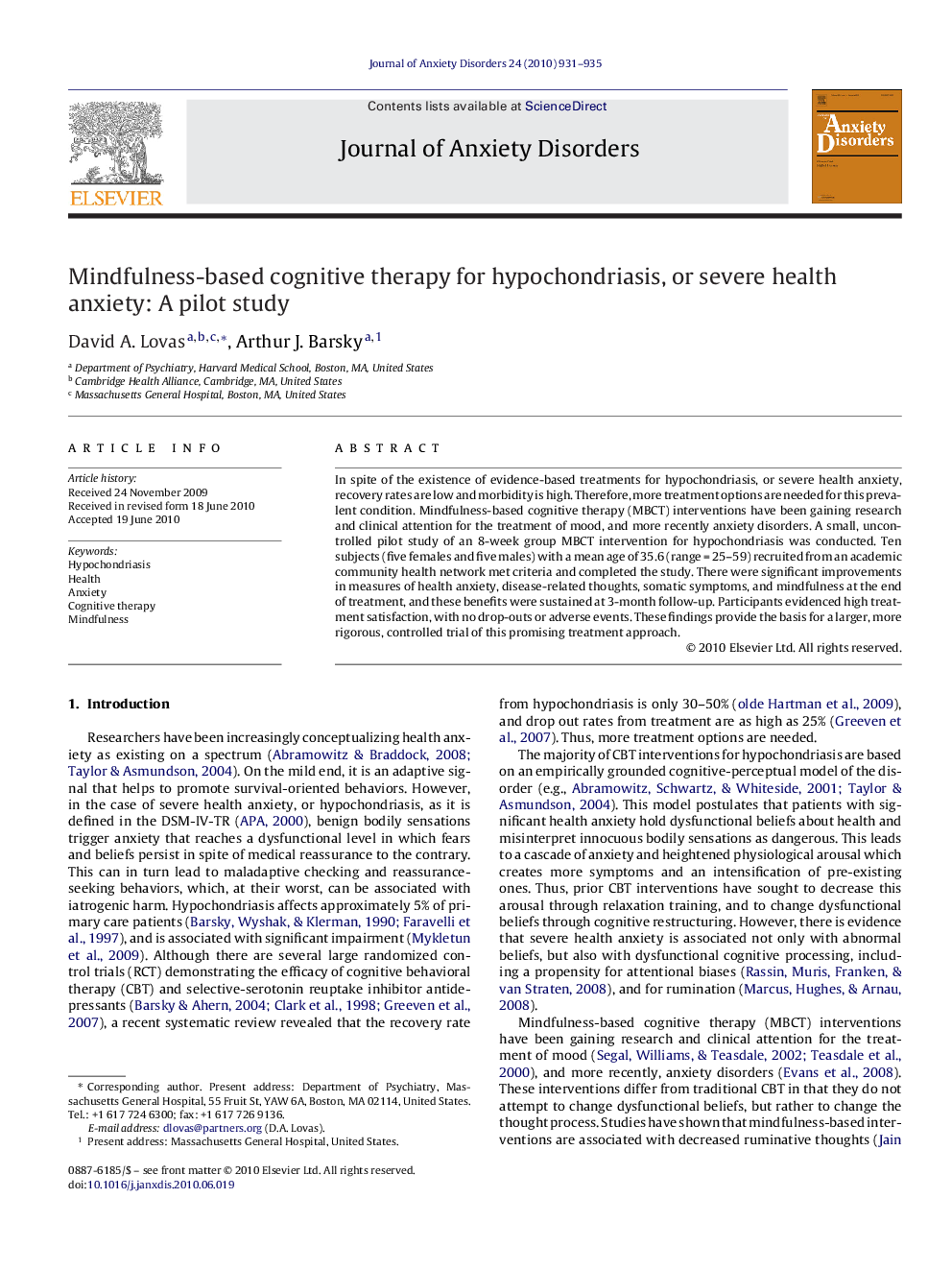| Article ID | Journal | Published Year | Pages | File Type |
|---|---|---|---|---|
| 909821 | Journal of Anxiety Disorders | 2010 | 5 Pages |
In spite of the existence of evidence-based treatments for hypochondriasis, or severe health anxiety, recovery rates are low and morbidity is high. Therefore, more treatment options are needed for this prevalent condition. Mindfulness-based cognitive therapy (MBCT) interventions have been gaining research and clinical attention for the treatment of mood, and more recently anxiety disorders. A small, uncontrolled pilot study of an 8-week group MBCT intervention for hypochondriasis was conducted. Ten subjects (five females and five males) with a mean age of 35.6 (range = 25–59) recruited from an academic community health network met criteria and completed the study. There were significant improvements in measures of health anxiety, disease-related thoughts, somatic symptoms, and mindfulness at the end of treatment, and these benefits were sustained at 3-month follow-up. Participants evidenced high treatment satisfaction, with no drop-outs or adverse events. These findings provide the basis for a larger, more rigorous, controlled trial of this promising treatment approach.
Research highlights• Patients treated with MBCT showed decreased health anxiety. • Gains were sustained at 3-month follow-up. • Improvement in health anxiety strongly correlated with improvement in mindfulness.
